Rosie Carr: “The first track on the album definitely has some wheelbarrow action on it”
The gardener and experimentalist behind an album of ambient ‘Tudorgaze’
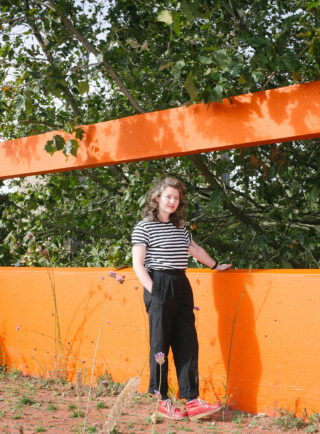
The gardener and experimentalist behind an album of ambient ‘Tudorgaze’
“Climate change is very real,” says ambient musician Rosie Carr gazing out of her window on an unseasonably hot October’s day. “There’s some horticultural stuff I have read where people try and put a silver lining on it because now you can grow these amazing drought tolerant Mediterranean plants but, realistically, if you get a crazy hot summer and then a freezing winter then loads of plants just die.”
For artist and green-fingered Rosie, whose debut album Yew is composed of echoes of a garden, her environment – our environment – matters a great deal. Having spent the last two years simultaneously training in horticulture in the Essex countryside and recording the immersive world of Yew, it’s been all encompassing in her life. “I thought, well I really like gardening and it’s something I always do, so why not get an actual qualification in it,” she says. “My initial thought was that it would replace my art but then it became part of it. The place I did my training were very supportive and into these concepts like rewilding and our connection to climate change. A lot of the stuff that we were talking about was feeding into my sound making. It’s such an amazing way to draw people into an idea or a concept so it informed the album and evolved quickly.”
Rosie’s study blurred into her music as Yew began to take shape. Field recordings and home-made instruments from her back yard became part of her world-building. “That’s right. Hang on…” she says, stifling a laugh and going to grab something from elsewhere before returning with two frankly bizarre-looking pieces. “These are moulded from Quikrete, this one has a bowl in it, you can plug it in here and it’s got a contact mic, so you can put marbles or water in it, it’s kind of a basic sound but I find it works well.” She stops to smile again before continuing: “Then this funny looking one has nails in it. I play this one in a number of ways but I have been using a whisk, it makes these different resonant sounds based on how high up the nail you hit or how wobbly the nail is. If you use different effects and guitar pedals you can shift the sound with various layers of reverb.”
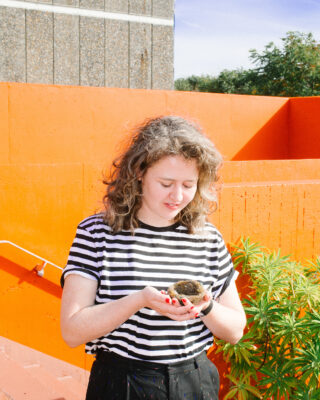
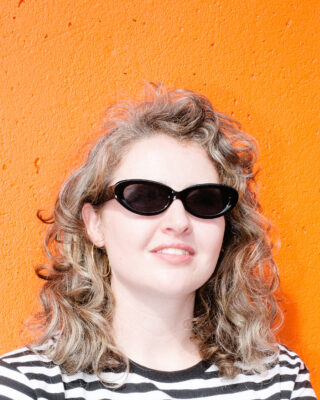
It’s this noise distortion that lives at the heart of Yew and makes it so captivating: live recorders and synths sit next to feedback, drum patterns and of course those self-captured recordings of her garden life. “A lot of it was recorded on the fly on my phone as a voice note,” she says, “but there would be some stuff I would do on a Walkman on tape, so just via the speaker on the Walkman. 50% of it though is on a phone and then processed in different ways – I would put it to tape and then through Ableton before going back onto tape so it would be buried in a process; analogue to digital and back to analogue. I would be out with a colleague who is a bird song expert and they would say, ‘Oh listen to that, it’s incredible’, so I would start recording. One time I was in the garden and I noticed my squeaky wheelbarrow so I would put my recording device in the wheelbarrow and then do a few laps around the garden. The first track on the album definitely has some wheelbarrow action on it.”
What’s this about ‘Tudorgaze’, I ask, referring to a description on Rosie’s Bandcamp page, as if wheelbarrows weren’t esoteric enough. “Ah, you’ve heard that term for my music,” Rosie chuckles. “I think maybe it was my partner Johnny who made that up. A lot of the music on Yew is also these tapes that I found in a charity shop in Essex. They were home recordings of an album called Music of the Tudor Age, I got it for like 20p or something, and then a bunch of that stuff I would stretch out to times 50 and pick out elements of it, just single chords or notes, rearrange them into different melodies and then record them out on a four-track tape recorder. There are a couple of moments in the album where it gets really expansive and it’s quite difficult to work it out but they are people playing the recorder or a lute but stretched to times 50 and massively processed.”
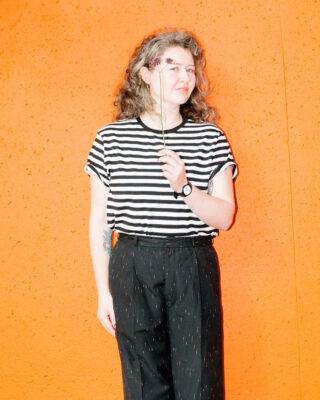
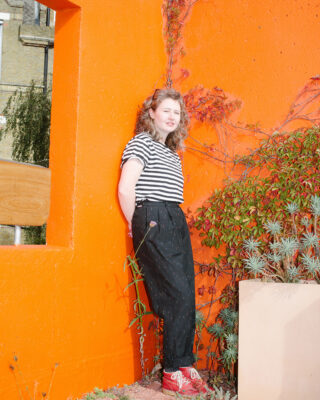
“‘Tudorgaze’ fits the vibe perfectly,” I agree.
“Yeah, for sure. It’s a bit shoegazey and the clue is in the name. The last track on the album, ‘Let me In’, has a dancey feel to it but the main hook is monks chanting, which is of course Tudor.”
Singing friars aside, it’s Rosie’s love affair with her recorder that holds her album together. “You’re right,” she says. “I am most definitely a recorder player – it’s not very cool but I love recorders. I think even when they sound bad they sound great. I love that anyone can pick one up and make a sound out of it. I have done quite a lot of recorder workshops called ‘Recorder Mania’, I did some workshops at Supernormal Festival recently and described it on the poster as apocalyptic sound bath meets school assembly.”
Life after Yew is already richly complex for Rosie. “I am starting a PhD this week,” she tells me. “I am sure a lot of people feel that if you’re working or studying at the same time as being creative that can be such a force for creativity. Of course it can be exhausting too! It’s a practice-based PhD, so I am not writing a full dissertation and it resolves itself with exhibition or performances. I think my music will inform it, which is how I seem to operate best.” With a working title of ‘Creative Ecology and World Building in Community Gardens’, I ask what her professors can expect? “Well, the title might change, don’t hold me to that!” she says. “What I am thinking about is world building in a creative sense, like an album but then how it relates to the world beneath the soil, our connection as humans to microbial life and critters, what’s inside a compost heap… worlds within worlds. There is a social and political history to gardens as well – I guess it’s quite deep! I’ll do an exhibition or a performance if you’d rather not read the dissertation.”